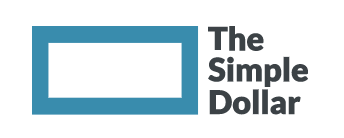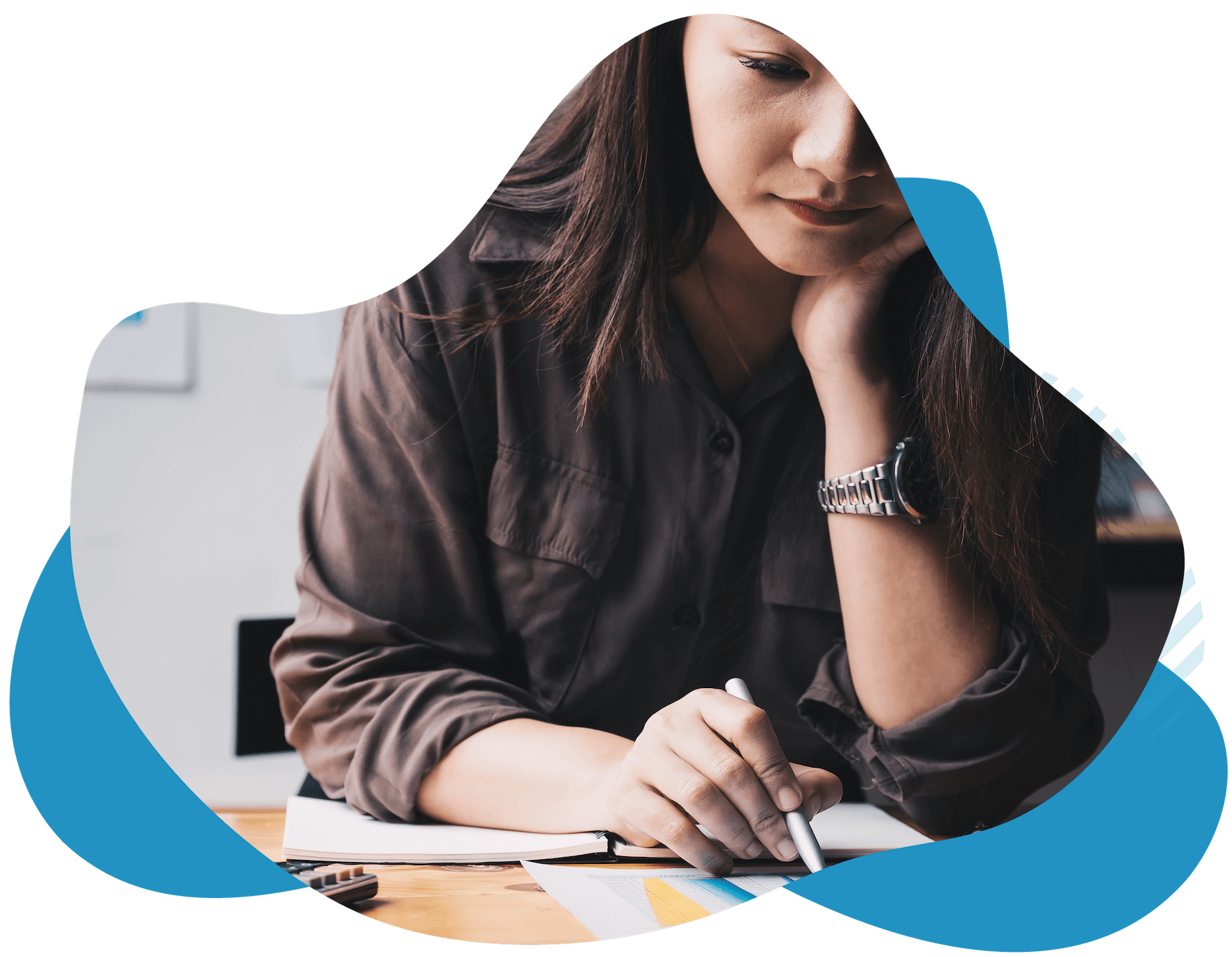
Financial literacy is important. We want to help...
At Gateway Financial Solutions, financial literacy of our customers is such an important aspect to our business. We want to see each and every one of our customers reach their financial goals and have success. Because of that, we've compiled some incredible resources here that provide our customers with ways to become better with money, bills, and become more informed about all aspects of their financial life.
Learn about Income, Expenses & Budgeting
Learn to read Credit Scores & Reports
Learn about Debt Management
Learn More About Financial Literacy
The more you learn about the ins-and-outs of financial literacy, the better equipped you will be to have financial success. Here are just a few of the subjects explored and things you will learn from the video below...
- Income, Expenses, & Budgeting
- Assets, Savings, & Stocks
- Interest, Deb & Liability
- & More
Helpful Links & Articles
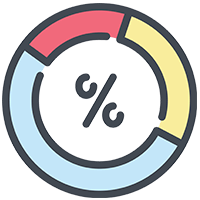
Credit Scores
A credit score is a three-digit number, typically between 300 and 850, which is designed to represent your credit risk, or the likelihood you will pay your bills on time. Learn more about how scores are calculated and what you can do to help.
Information provided by

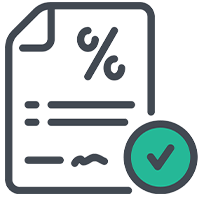
Credit Reports
Credit reports are a summary of your credit history, reported to credit bureaus by lenders and creditors. They contain personal information to identify you; information about your credit accounts, like credit cards, mortgages, student loans, and vehicle loans.
Information provided by

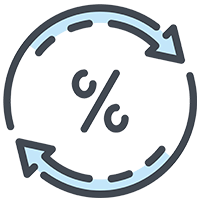
Interest Rates & APR
Knowing how interest rates & APR work - for an auto loan - or any other type of loan can really help you understand the cost of borrowing money. These are just a few terms you need to know that will help you whenever getting a loan.
Information provided by

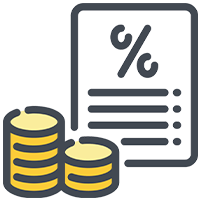
Debt Management
Learn how debt can affect your credit scores, plus the different types of debt (both good and bad), and the best practices for paying it off. It's not a one-size-fits-all solution but rather an amalgmation of choose you can make to pay off your outstanding debts.
Information provided by

Answers to common finance questions...
I think your emergency fund suggestions are too small. People should have more than a month of money socked away in their emergency fund.
– Darwin
I agree with you. An ideal situation likely has every American family with at least a year of living expenses stowed away in savings. The problem is that we don’t live in an ideal world. Even before coronavirus, 80% of Americans lived paycheck to paycheck, meaning that missing a single paycheck would lead directly to missing bills and juggling finances. Telling someone in that situation to sock away a year’s worth of living expenses is like telling someone going on their first hike to go climb Mount Everest.
[ More: How to Start Building an Emergency Fund ]
My usual emergency fund recommendation is to get people to a point where they can rely on that fund for a lot of common emergencies — a month’s worth of living expenses should handle that — and then to perpetually fund it by having a weekly automatic transfer from their checking account to whatever account they store their emergency fund in. That’s because, past a certain point (and that point is admittedly very debatable), it’s better to try to start addressing your monthly cash flow instead of adding a lot more to your emergency fund. You should start trying to permanently reduce your monthly expenses, particularly by repaying debt, but also by cutting and eliminating services.
Cutting your expenses is a sure way to reduce the money going out.
I don’t understand what people mean by credit and checking your credit report. I know what a credit card is. Can you explain it?
– Danny
When people talk about your credit, what they are talking about is your recent past in terms of whether you’ve kept up with your bills and whether you’ve borrowed a lot of money. Your credit score is a three-digit number that reflects your borrowing and saving habits by analyzing any loans or credit cards extended to you, as well as any other financial accounts. If you have been keeping up with all of your bills for quite a while and haven’t built up a big balance on your credit cards, you very likely have good credit. In general, keeping up with your bills is the more important part of the equation, but having a lot of credit card debt still has a negative impact.
[ Related: The Best Credit Report Sites of 2020 ]
All of that information about whether you’re paying your bills and what your credit card balance looks like is given to three companies called the credit bureaus — Experian, Equifax and TransUnion. Their entire business is to collect that information, package it up and sell it to businesses who might want to have you as a customer. This is known as your credit report. A business that is considering issuing you a credit card, lending you money or offering you a job will go to one or more of those credit bureaus, request a copy of your credit report and use that to figure out how trustworthy you are. The more trustworthy you are, the better their offer is going to be; if you look particularly untrustworthy, they may not want to do business with you at all.
You can check your credit report from each of those bureaus once a year for free from the federal government. They’re a bit tricky to read, but they offer quite a bit of guidance to help you make sense of all of that information. If you decide to look, what you’ll want to make sure of is that all of the information is completely accurate. If something on there is definitely wrong, you’ll need to contact both the business that put that incorrect info on there as well as the credit bureau that has the wrong report.
I need to find a good online bank. My career has me moving a lot sometimes more than once a year and I have switched banks four times in the last two years. I have decided to just move to an online bank so I don’t have to keep switching. What should I look for in an online bank?
– Mannie
I’m assuming that all of your moving about is within the United States. If that’s not the case and some of your movement is international, you’ll probably just want to go with an account with a large multinational bank that will be able to operate with you wherever you go.
If you’re within the U.S., your options are much wider. Here are four features I’d always look at for an online bank.
[ Read more: The Best Online Banks in 2020 ]
First, make absolutely sure it’s FDIC-insured. That way, if the bank were to go out of business, your account balance (up to $250,000) is insured.
Second, make sure the bank offers either a wide ATM network, ATM fee reimbursement or both. You’re going to have to hit an ATM every time you need cash or need to make a non-electronic deposit, so you want to make sure that you’re not being devoured by fees. For example, many online banks use the Allpoint network, which has about 55,000 ATMs mostly in the U.S.
Third, online banks usually offer pretty competitive interest rates, so make sure the one you choose is at least close to others. To be sure, “competitive” right now isn’t very high — in an era where home loans are below 3% interest rates, savings accounts that even reach 1% are quite good, but that’s better than most brick and mortar banks. Don’t sweat a difference of 0.25% or less — if one bank has a 0.8% interest rate and another has 1%, it’s not a huge difference unless you have thousands upon thousands of dollars in savings. On $1,000 in savings, that’s a difference of $2.
Finally, the bank you choose should offer lots of tools for managing your money — easy online banking should be just a given. Tools I find useful include automatic transfers amongst your accounts and the ability to set up multiple savings accounts with a few clicks.
If I were starting over with a bank right now, I would particularly like the offerings of Ally Bank.
Several of the grocery stores in my area have online grocery shopping and curbside pickup. Am I missing something? Isn’t that a great way to shop for groceries and avoid impulse buys and make grocery shopping cheaper?
– Dana
You’ve hit upon the positives of using an online service to shop for groceries. You avoid impulse buys, plus you can spend time adding things to your cart gradually and do meal planning at your own pace. Plus, you can usually pick up at a convenient time for you, and it’s quite fast. I love just driving over to the store, parking in a spot, texting them, waiting about five minutes, the car is loaded up with groceries and I’m on my way home. No crowds, no waiting at the checkout, none of that. That’s literally my least favorite part of grocery shopping, and online grocery shopping for pickup eliminates it.
There are some cons, though. Some stores require a fee for this, or for delivery, but it’s sometimes waived if you have a big enough order. You don’t get to look at or choose your own produce. There’s no guarantee that the price in the app or on the website is the same as the one in the store, so you might have higher prices on some items — but you can always look at the online shopping of different stores. If a store is out of stock of something when the person gathering your order goes to look for it, then they’ll either substitute something or just leave it out of your order, which can be a problem. They also occasionally make mistakes, which can be frustrating. Another big con is that most discount grocers simply aren’t offering this kind of service; the stores around here that do it aren’t really discount grocers, so you’re paying a little more for your stuff and that takes away some of the advantages of avoiding impulse buys.
I’ve been using online grocery services during coronavirus and I’ve found them to be a net positive. I think, at the stores I use, the online prices are the same as in the store, the fee is waived when I buy a week’s worth of groceries at once, the produce has been fine, and the few times there’s been a substitution, the substitute has been reasonable. That’s not a guarantee that it will always be that way, though.
Trying to get money straight. Everything talks about a budget but whenever I look at a budget it looks way too complicated. What is it even supposed to be for real people?
– Noelle
The point of a budget is to figure out what you’re going to do with all of the money you’re bringing in.
Let’s say you bring home $3,000 a month. You have to spend $1,000 on rent, $100 on the energy bill, $100 on the cell phone bill, $200 on a student loan, $50 on internet, $50 on internet services like Netflix, and $100 on a credit card bill. You’re left with $1,400. How are you going to split that up on things like food, saving for emergencies, buying gas for your car, saving for retirement or other big goals and having a little fun?
[ More: The Simple Guide to Healthy Living on a Budget in 2020 ]
That’s what a budget is. You might decide that you’re going to spend $400 on food and household supplies, $100 on gas, $200 saving for emergencies, $100 saving for retirement, $200 saving for a down payment, and the remaining $400 is for fun things and incidentals. Or you might decide something completely different.
A budget is just a list of those things with how much you plan on spending on each of them. You use it to put some limits on your spending in each of those areas. At the end of the month, you sit down and figure out how much you actually spent on each of them and figure out what you could do better each month.
It’s usually a good idea when you’re budgeting to start paying yourself first. That means, right off the bat, you pay the bills and put money into savings and retirement accounts, so that the remaining money is just used for the remaining stuff. In this example, you’d pay all the bills and put money aside for emergencies and retirement and a down payment, leaving you with $900 for food, gas, fun and incidentals for the month.
Some books and websites get very carried away with budgeting, making it far more complicated than this. This is really all that budgeting is, when you boil it down to the core.
I want to start building positive credit for myself. I am 23 years old. I have never had any debt at all. My parents paid for college. To rent an apartment, my mom had to cosign the lease. I have decided to get a credit card to build credit but I am concerned about identity theft and all of the risks of credit cards. What is a good first credit card?
– Maxwell
I’m going to assume that if you applied for a credit card right now, you wouldn’t be able to get one due to a complete lack of credit. In that situation, your best approach is to simply be added as an authorized user to one of your parents’ cards, if possible, then applying for your own card in a year or so. If your parents handle that credit card account responsibly by keeping the bills paid and making sure it never gets close to the credit limit, it will help your credit and set the stage for you to easily get a card of your own in a year or so.
What if they won’t do this for you? Another approach is to stop by a credit union or bank and get a secured credit card. This is basically a credit card with a deposit — you bring some amount of money to put down as a deposit on the card so that there’s no risk for the bank, then they give you a credit card. That deposit is only used if you fail to pay the bills; otherwise, it’s a normal card. You use the card for a while, then either they give you the deposit back or your credit is strong enough to apply for your own card.
[ Read: The Best Credit Cards of 2020 ]
So, what if you’re ready to apply for your own card? A good first card is a Visa or MasterCard associated with a retailer that you frequently use (meaning there’s a bonus program for that retailer) with a relatively low credit limit. If you shop at Target frequently, get a Target card. If you shop at Amazon frequently, get an Amazon Visa. If you always get gas at the BP, get a BP card. If you’re unsure, just get a good general rewards card. Then, limit your spending on that card — use it only for specific purposes, leave it at home otherwise and pay it off in full each month. Your credit will become more and more healthy and the bonuses will be nice, too.
Could you explain in really simple terms what a premium is when you are talking about insurance? What about a deductible? We need homeowners insurance but nothing makes sense!
– Denny
When you’re buying an insurance policy to protect yourself against damage or loss of that item (like a car or a home), there are two key numbers that are often quoted with the policy: the premium and the deductible.
The premium is the amount you pay to the home insurance company each month, quarter, or year to keep the policy. You might have a premium of $200 a month, for example, or $2,000 a year. The deductible is what you agree to pay upfront when you file a claim. If you have a deductible of $500 and a repair costs $1,000, you will pay $500 and insurance will cover the rest. Keep in mind that low deductibles usually come with high premiums, while high deductibles will usually mean lower premiums. It’s up to you to decide if you’d rather pay less out of pocket for a repair during a claim or if you want to pay less on a premium every month or year.



